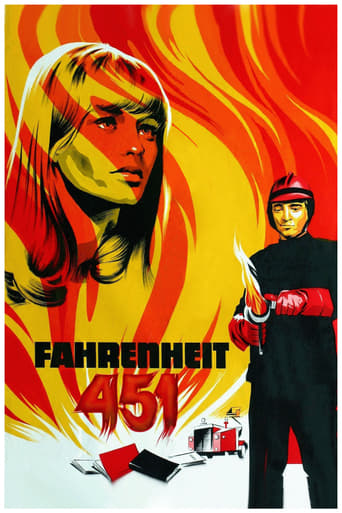What if you had no right to read?
"Fahrenheit 451," the 1966 cinematic adaptation of Ray Bradbury's dystopian novel, was brought to life by the collaborative efforts of Anglo Enterprises and Vineyard Film in the United Kingdom. Directed by the visionary French filmmaker François Truffaut, this film marks a significant departure from his usual French New Wave style, embracing the stark, oppressive atmosphere of Bradbury's future world. The film's title, derived from the temperature at which book paper supposedly ignites, sets the stage for a chilling exploration of a society where books are outlawed and "firemen" burn any that are found. In this haunting portrayal, the protagonist, Guy Montag, played by Oskar Werner, is a fireman who begins to question the morality of his role after encountering the free-spirited Clarisse, portrayed by Julie Christie, who also plays Montag's conformist wife, Linda. The dual role of Christie underscores the film's thematic tension between individuality and conformity. The film's visual style, characterized by its use of vibrant colors against bleak settings, effectively conveys the oppressive nature of the society while highlighting moments of rebellion and hope. Truffaut's adaptation diverges from Bradbury's novel in several ways, yet it retains the essence of the story's critique on censorship and the suppression of knowledge. The film's pacing and dialogue, while sometimes criticized for being slow and stilted, contribute to the overall sense of a society numbed by its own complacency. The haunting score by Bernard Herrmann adds an additional layer of tension, enhancing the film's atmosphere of impending doom. "Fahrenheit 451" remains a powerful cinematic statement on the dangers of censorship and the importance of intellectual freedom. Its release in 1966, during a time of social and political upheaval, resonated with audiences and critics alike, cementing its place as a significant work in the science fiction genre. The film's enduring relevance continues to spark discussions about the role of literature and the consequences of a society that fears the power of ideas.
Year1966
Budget1500000$
Runtime113 min
Revenue2000000$
GenresDramaScience Fiction
Production countriesUnited Kingdom
